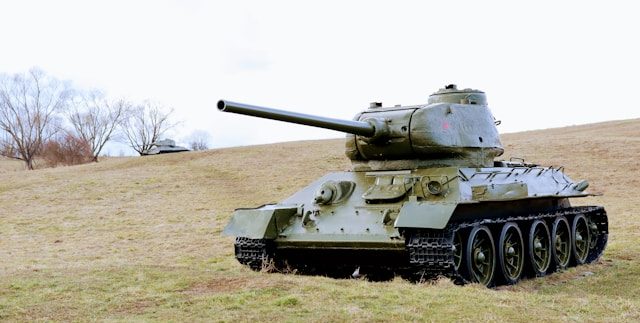
News Writer Christopher Crowson reports on Israeli Tanks Advancing in Rafah Amid Humanitarian Crisis and Global Criticism
Israeli forces continue their advance into the southern Gaza city of Rafah, increasing the civilian death toll and Israel’s international isolation. On Tuesday, Israeli tanks were reportedly seen in central Rafah for the first time, having reached the al-Awda roundabout, a key city landmark with major banks, government institutions, businesses, and shops.
Residents claimed that Israeli tanks were also stationed atop the strategic Zoroub Hill, 2.5 km northwest of the al-Awda roundabout. The capture of this point gives the Israeli Defence Force (IDF) control over the Philadelphi Corridor, a narrow strip along the Egyptian border to the Mediterranean. The hill overlooks western Rafah, which has suffered heavily from air and artillery strikes since Israel began operations in the city three weeks ago.
On 6 May, the IDF launched targeted ground operations against Hamas fighters and infrastructure in Rafah. Despite warnings of severe humanitarian consequences, Israel insists that capturing the city is necessary to defeat Hamas. This campaign follows the 7 October attacks in which Hamas killed 1,200 people and took 252 others hostage in southern Israel.
The Hamas-run health ministry claims that since the IDF launched military operations last year, over 36,000 Palestinians in Gaza have been killed. On Sunday night, at least 45 people, mostly children, women, and the elderly, were killed by an Israeli air strike that caused a large fire in a camp for displaced people in the Tal-al Sultan area. The IDF said the airstrike aimed to neutralise two senior Hamas commanders after Hamas fighters targeted Tel Aviv with rockets from south-eastern Rafah.
Prime Minister Benjamin Netanyahu called the incident a ‘tragic mistake’ despite ‘immense efforts to avoid harming non-combatants.’
Prime Minister Benjamin Netanyahu called the incident a ‘tragic mistake’ despite ‘immense efforts to avoid harming non-combatants.’ He has ordered a thorough investigation of the airstrike but has vowed to continue the offensive in Rafah. IDF chief spokesman Rear Admiral Daniel Hagari stated that the strike hit buildings 180 metres from the tents where the fire occurred and that IDF munitions alone could not have ignited such a fire. Investigations are exploring whether an explosion of an ammunition or weapons warehouse near the tents caused the unexpected and unintended fire.
The UN agency for Palestinian refugees (UNRWA) reported that since early May, 1 million Palestinians have fled Rafah, with hundreds of thousands still taking refuge in the city. Many residents, like Khaled Mahmoud, have nowhere safe to go as Gaza’s humanitarian situation worsens. He told the BBC, ‘We are supposed to be in a safe zone according to the Israeli army, yet we have not received evacuation orders like those in the eastern [Rafah] region… We fear for our lives if no one steps in to protect us.’
International condemnation of Israel has increased. The UN Security Council assembled for an emergency meeting to discuss Israeli operations in Rafah on Tuesday, and the UN’s top court has ordered Israel to end the offensive. Ireland, Spain, and Norway have officially recognized Palestinian statehood, aiming for a permanent solution to the conflict. Israel responded by recalling its ambassadors from Madrid, Dublin, and Oslo.
Read more News updates here:
Study Provides New Insights into UK Neurodiversity
Birmingham Business School Receives Prestigious Global AMBA Award for Deloitte Partnership
Women’s Unions Warn Cuts to Public Services in England Will ‘Reverse’ Gender Equality

Comments